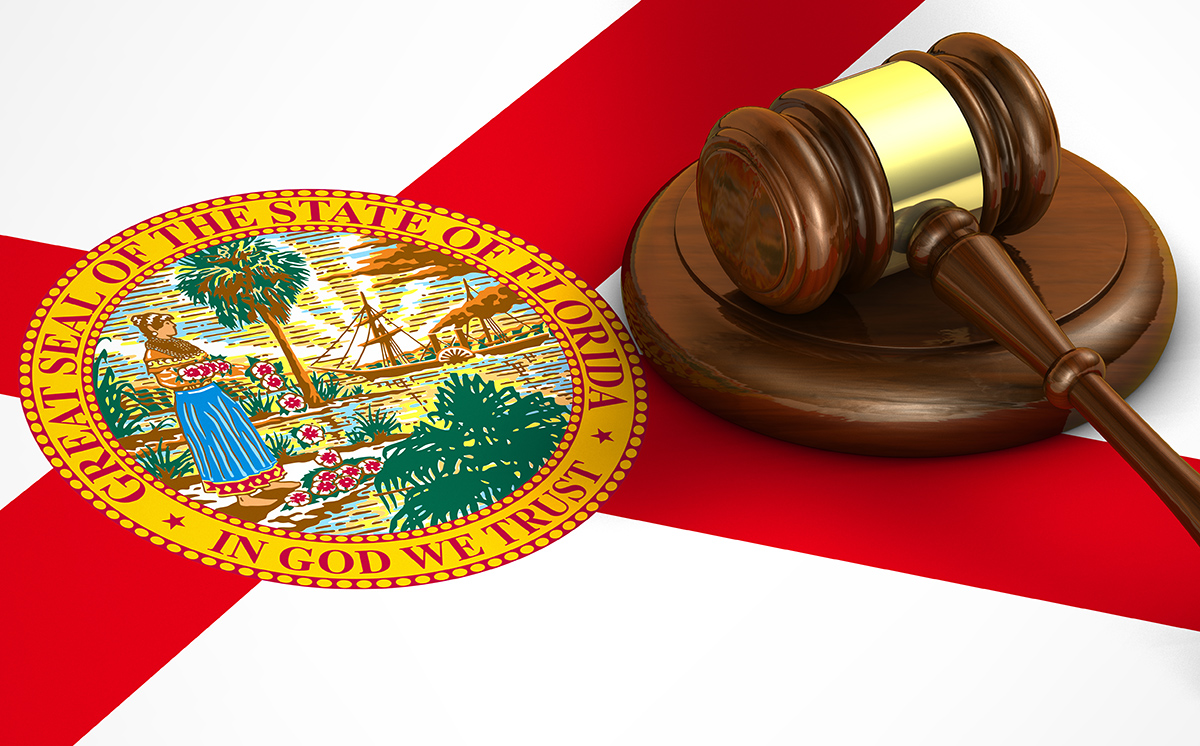eNews February 13
In the News
February 13, 2020
Technology: A Credit Professional’s Safe Haven
—Andrew Michaels, editorial associate
Every business is different. Whether it’s differences in the goods/services offered, general operations or size, no two businesses are cookie cutter versions of one another. In recent years, the credit industry has proven this true with the incorporation of technology in credit departments: Some are “set in their ways,” while others utilize new solutions. But what about those that don’t have the option, yet want to adopt new tech? For example, small businesses.
Not all small- to medium-sized businesses (SMBs) have sworn off technology; however, being a smaller business comes with its own challenges. According to PaymentsSource, for instance, SMBs’ ability to use new payment solutions varies based on whether they have the resources. Despite many companies forming in the age of technology and expanding globally, companies’ operations haven’t adapted.
“The combination of these two trends means that small- and medium-sized businesses are desperately in need of partners who are as global and nimble as they are,” an article in PaymentsSource stated. “With political headwinds such as Brexit and the trade war further threatening to destabilize worldwide markets, decreasing business confidence, and putting costs and efficiency front and center—it’s at the intersection of SMEs (small- to medium-sized enterprises) and B2B (business-to-business) credit where we’ll be seeing the future of payments.”
Even if such partnerships arise, finding a solution that best fits small businesses is a separate roadblock. During an interview with PYMNTS, Matan Bar, co-founder and CEO of Melio Payments, said the majority of payment solutions today are built to handle large amounts of invoices, whereas SMBs may see only “60 to 80 payments a month.” Although automation is beneficial, many of the current solutions don’t push enough SMBs away from paper checks.
For Credit Manager Yokaira Acosta, one of the reasons his company integrated technology was because it had the money to invest. Technology is changing the credit department’s operations, he said, and it was time the company embraced it.
“We want to stay competitive and make it easier for the customer to view products online and pay for their bill securely online,” said Acosta, who works for a company of approximately 500 employees. “Customers provide their credit card [information] securely on our website, and we are still working on making changes.”
At ELIX Polymers, another small business, Credit Manager Marc Molines said digitalization was completed to automate reports to monitor debt and feed the credit model, and is now underway to automate approval workflow. Similar to Acosta, Molines said it’s tough for SMBs to invest and then generate a Return on Investment (ROI).
Technology has helped Molines automate the major part of the order-to-cash process in addition to accessing rating agencies’ data. The platform he is in the process of implementing will allow him to automate the approval workflow of credit lines.
“Also, Blockchain to secure payments must be used when it is proven and working, and the automation of the banking process or cash allocation process—when the portfolio is extensive—can be easily profitable,” Molines said. “In my opinion, without technology and because of the size of my credit department, I would have become crazy.”

Master Business Law at Your Convenience, at Your Own Pace
Understanding the basics of business and contract law is a must for all busy credit pros. Business Law, NACM’s new Credit Learning Center course, is designed to arm you with knowledge about the basics of law, with an emphasis on contract law. In 18, one-hour sessions, you’ll learn about contracts, the Ts & Cs of credit applications and emerging issues such as internet law, privacy and cyber crime.
Coming in March 2020 at $599, including course textbooks.
This course satisfies one of the two required CBF courses. Visit the Credit Learning Center (CLC) or contact the NACM Education Department at This email address is being protected from spambots. You need JavaScript enabled to view it. or 410-740-5560 to learn more.
This course satisfies one of the two required CBF courses. Visit the Credit Learning Center (CLC) or contact the NACM Education Department at This email address is being protected from spambots. You need JavaScript enabled to view it. or 410-740-5560 to learn more.
New York Lien Deadline Is No Joke
—Michael Miller, managing editor
The home of The Great American Irish Festival is facing hundreds of thousands of dollars in liens following the latest one from a contractor. According to WKTV in Utica, New York, the Irish Cultural Center was recently hit with a nearly $217,000 lien by a contractor. This brought the total amount of liens on the multi-use event, museum and restaurant space to roughly $340,000. However, the center’s developer is not worried about liens on the property as this is typical for construction projects.
"Just because it's filed for that amount doesn't mean that amount is due," Vaughn Lang told WKTV. "The amount owing is in controversy. It's a typical thing for the amount owing to be in controversy." He will dispute the dollar amount of the lien in New York State Supreme Court. "It doesn't bother me that some contractor or any contractor files a mechanic’s lien because I'm so used to this. I deal with it all the time as an attorney," he continued.
Another lien previously filed for roughly $67,000 is also still unpaid.
While some states require documentation such as a preliminary notice before any mechanic’s lien discussion can begin, New York does not. Nevertheless, NACM’s Secured Transaction Services suggests serving the notice 45 days from last furnishing to prompt payment. With that said, that doesn’t mean no documentation is ever required to file a lien in New York because it is, and there are certain timeframes that must be met to form a valid lien. This is similar to any lien statute—to have a valid lien and rights to become a lien claimant, timeframes must be followed.
Lien claimants have eight months from last furnishing, among other deadlines, to file a notice of lien on private commercial projects. This notice can be filed at any time during work on the project as well. The notice of lien must also be filed in the county clerk’s office where the project is located—and in all county clerk offices if the project is in more than one county.
A copy of the notice of lien must be served to the owner “within five days before or 30 days after filing the notice of lien,” according to Section 11 of the state’s lien law. Within this time, there are several steps that must be completed to satisfy serving the copy of the notice. Two ways to fulfill this obligation are: delivering to the owner, their agent or attorney personally and certified or registered mail to the last known place of residence.
For a copy of the notice of lien to a contractor or subcontractor, those lower on the supply chain must serve the notice copy to the “contractor, subcontractor, assignee or legal representative for whom he was employed or to whom he furnished materials, or if the lienor is a contractor or subcontractor to the person, firm or corporation with whom the contract was made” via certified mail. A claimant with a direct contractual relationship with a sub or sub-subcontractor but not with a contractor must also serve a copy by certified mail to the contractor.
“Failure to file proof of such a service with the county clerk within 35 days after the notice of lien is filed shall terminate the notice as a lien.”

To Be the Best, You Have to Learn from the Best
Choose among the many 2020 spring educational courses available to you:
CBA/CBF/CCRA Courses
Accounting: May 4–Aug. 21
Business Law: Apr. 27–Jul. 24
Credit Law: Apr. 27–Jul. 24
International Credit & Risk Management Online Course
May 11–Aug. 9
• More convenient than the traditional classroom
• Earn course credit toward an NACM designation
• Choose your study and exam times
Early bird rate ends April 10, 2020. Visit www.nacm.org to learn more and register for classes.
Early bird rate ends April 10, 2020. Visit www.nacm.org to learn more and register for classes.
CCPA: What Are the Employee/Applicant and ‘Business-to-Business’ Exemptions?
—Cynthia Larose, Esq.
Because the term “consumer” is so broad in the California Consumer Privacy Act (remember: it’s any California resident), it would have applied to employee and job applicant data and all business contact information across the board. After much negotiation, the legislature enacted (and the Governor signed) two amendments dealing with this information. Until Jan. 1, 2021, the California Consumer Privacy Act (CCPA) will not apply to information collected about employees or job applicants, or in typical business-to-business (B2B) transactions by a business otherwise required to comply with CCPA.
Employees and job applicants. Certain information collected from, or about, employees and job applicants in the course of employment will be outside of the scope of the CCPA until Jan. 1, 2021. This includes emergency contact information, so long as it is only used for that purpose. It also covers information that an applicant, employee, etc. provides in the context of applying for or receiving benefits for that individual or others related to the individual, again—so long as it is only used for that purpose. This leaves any other information that is received from any of these individuals in any other context. Examples are when an employee makes a purchase or signs up for a newsletter. Businesses covered by CCPA are still required to give employees/job applicants notice of the collection/use practices and are also prohibited from collecting additional information or using it for additional purposes without first providing notice. Notices must be given “at or before the time of collection” of the information. The amendment does not apply to the employee or job applicant’s private right of action under Section 1798.150 in the event of a data breach of such information.
B2B information. This amendment temporarily exempts “information reflecting a written or verbal communication or a transaction between the business and a consumer, where the consumer is a natural person who is acting as an employee, owner, director, officer or contractor of a company, partnership, sole proprietorship, nonprofit or government agency and whose communications or transaction with the business occur solely within the context of the business conducting due diligence regarding, or providing or receiving a product or service to or from such company, partnership, sole proprietorship, nonprofit or government agency.” The amendment takes out of the CCPA scope any personal information in this context, whether the business the buyer or seller of goods or services, including when the business is preparing to buy or sell goods or services. The exemption in this amendment extends request for deletion (§1798.105), request to know (§1798.110), disclosure of information sharing (§1798.115) and §1798.135 (implementing do-not-sell requests). The amendment does not exempt a CCPA-covered business from its “Do Not Sell” obligations, therefore, if your business collects this type of B2B information and “sells” in the meaning of the CCPA, you will be required to put a “Do Not Sell My Personal Information” link on your website, or provide some other means by which individuals can opt-out of such sales.
These amendments automatically sunset on Jan. 1, 2021 unless the legislature takes further action in the 2020 legislative session.
Cynthia Larose, Esq., is chair of the Privacy & Cybersecurity Practice of Mintz Levin Cohn Ferris Glovsky and Popeo PC. Cynthia has extensive experience in privacy, data security and information management matters, including state, federal and international laws and regulations on the use of transfer of information, data security breach compliance and incident response and data breach incident response planning, as well as data transfers in the context of mergers and acquisition and technology transactions.

FCIB @ Credit Congress
FCIB @ Credit Congress offers a dozen compelling and relevant educational sessions from which you may choose. Ranging from the fundamentals to more sophisticated, challenging subjects. Based on your experience, interests and goals, tailor a conference agenda that is most applicable and affords the greatest return to you and your company.
New! 29017. Pre-conference Workshop: Letters of Credit
29022. INCOTERMS 2020: What Changes Were Made, Why You Should Care and What Every Exporter Must Know
29033. The Other Races: Balance of Economic Power Globally
29042. Doing Business in China
29052. 2020 Vision: The Global Debt Problem and Public Company Risk
29062. Creative and Sound Techniques for Effective Debt Collection in Mexico
29072. Risk in Channels of Distribution in Mexico and Latin America
29082. I'm in Paris, Texas but My Stuff's in Paris, France—Credit and International Business Transactions
29092. Securitizing Assets Furnished to Latin American Projects
Please visit creditcongress.nacm.org for more information and to register.
Please visit creditcongress.nacm.org for more information and to register.
New Mandatory Bond Notice Forms in Florida
—Brian A. Wolf, Esq., and Miles D. Jolley, Esq.
Subcontractors and suppliers must now use new statutory notice of nonpayment forms to preserve payment bond claims and sign each notice of nonpayment under oath.
The State of Florida instituted changes to the statutes governing public-project payment bonds (section 255.05, Florida Statutes) and private-project payment bonds (section 713.23, Florida Statutes). The changes went into effect Oct. 1, 2019. Previously, notices of nonpayment were not required to be signed under oath. Now, the law requires the use of specific statutory notice forms that claimants must sign under oath. Previously, there were no statutory penalties for claimants who exaggerated the amount claimed against a payment bond. Now there are specific statutory penalties against a claimant who willfully or negligently signs a notice of nonpayment that includes a claim for work not performed or materials not furnished, or who is guilty of signing a notice prepared with willful or gross negligence.
Public construction payment bonds are governed by section 255.05, Florida Statues, also known as Florida’s Little Miller Act. This statute requires all payment bond claimants who don’t have a direct contract with the general contractor to serve both the bonding company and the general contractor with a notice of nonpayment no later than 90 days after their last date of work or last delivery of materials. The amended statute now requires that the claimant use the statutory notice form and sign the form under oath. If the claimant includes exaggerated claims, or intentionally makes a claim for work or materials not provided, or otherwise prepares a notice with gross negligence, then the bonding company and the general contractor will be able to use such as a complete defense to an otherwise valid bond claim.
Private construction payment bonds posted by the general contractor are governed by section 713.23, Florida Statutes. This statute requires all payment bond claimants including those contracting directly with the general contractor to serve both the bonding company and the general contractor with a notice of nonpayment no later than 90 days after their last date of work or last delivery of materials. The amended statute now requires that the claimant use the statutory notice form and sign the form under oath. If the claimant includes exaggerated claims, or intentionally makes a claim for work or materials not provided, or otherwise prepares a notice with gross negligence, then the bonding company and the general contractor will be able to use such as a complete defense to an otherwise valid bond claim. Another important change to section 713.23 is the new requirement that payment bond claimants specify the portion of their bond claim that represents retainage. Previously, the requirement to specify the amount claimed for retainage only applied to public projects—now it applies to both public and private projects.
The changes to Florida’s payment bond statutes are intended to deter and penalize claimants who make exaggerated or fraudulent bond claims. It should be anticipated that the courts will apply the revised statutes in the same manner as established law regarding fraudulent liens since the statutory changes are modeled after Florida’s fraudulent lien statute, section 713.31, Florida Statutes.
This article is not intended to cover all bond-claim requirements, nor is this article intended to provide legal advice. Every bond claim is different and parties should seek the advice and counsel of a Florida Bar Board Certified construction specialist to obtain legal advice regarding any bond claim.
Brian A. Wolf, Esq., is a partner in the Fort Lauderdale office of Smith, Currie & Hancock LLP. Brian’s practice is concentrated in the defense and prosecution of complex construction and design claims involving both public and private projects. His practice includes all facets of construction law.
Miles D. Jolley, Esq., is an associate in the Fort Lauderdale office of Smith, Currie & Hancock LLP. Miles concentrates his practice in the areas of construction law and litigation, including representation of construction project owners, contractors, construction managers, major trade contractors, sureties, architects and engineers.

Construction Credit is Complicated
What's required to maintain and enforce lien and bond rights is complicated, especially when selling in multiple states. Some vendors give away basic lien and bond information for free. That can be helpful, but be warned that there are no shortcuts to fully understanding the complexities of a state's lien and bond statutes.
The STS Lien Navigator digs deeper to provide the answers that will help guide you through the entire process. It's that depth and attention to detail you may not know about that makes the difference. The STS answer line is also available with your Navigator subscription.
For the easiest, most cost-effective professional answer to your construction credit questions, get the help you need with the Lien Navigator.
For more information, call Chris Ring at 410-302-0767 or visit www.nacmsts.com.
For more information, call Chris Ring at 410-302-0767 or visit www.nacmsts.com.



